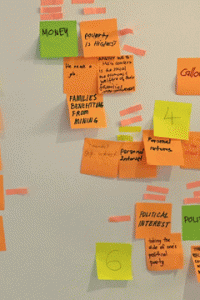Citizen use of digital tools to effect government responsiveness
Institute of Development Studies
“Although the importance of power relations is acknowledged in the literature on citizen engagement technologies, there has been relatively little systematic power analysis in research on this subject to date”
January 2017 End date
September 2017
Issue
The early promise of technology for transparency and accountability has not been realised. This may be because of a false assumption: that aggregating and communicating peoples’ demands via citizen engagement technologies will result in increased government responsiveness. Research has tended to assess how the use of citizen engagement technologies amplifies citizen voice and stimulates government response, rather than asking why this does not happen, or how it is shaped by power relations.
Project
This study looks at two case studies of civic engagement technology initiatives in the Philippines. It examines which forms of power - operating in which places and spaces - shape the use or non-use of technologies, and government responsiveness, or the lack of it.
Key research questions include:
- Why is uptake of citizen engagement technologies so low?
- Why are government responsiveness levels to citizen engagement technologies so low?
- What technological practices do citizens use in their everyday lives, and what is the scope for building on them?
- How does this inform theories of change about how and why citizen engagement technolgies work?
Partner
Tony Roberts is a research fellow in the Digital and Technology Development cluster at the Institute of Development Studies. He has been working at the intersection of digital technologies, international development and social justice since 1988 as a volunteer, lecturer, practitioner, trustee and researcher.
Publications
-
 View publication
View publication
The techno-centric gaze: incorporating citizen participation technologies…